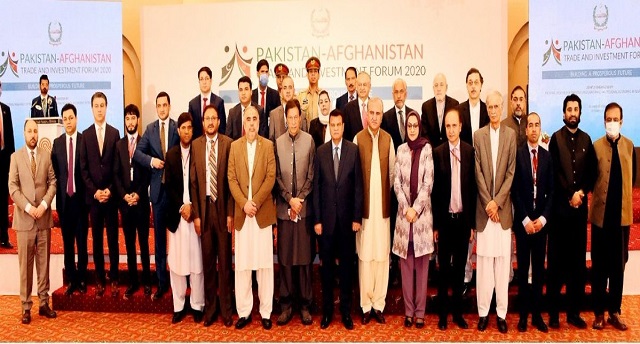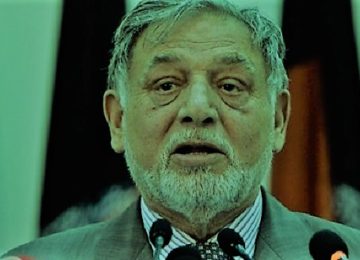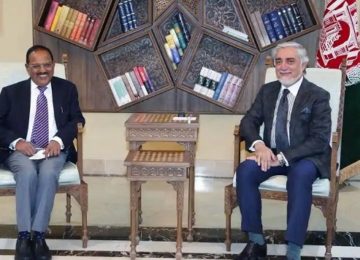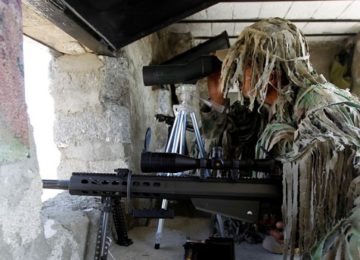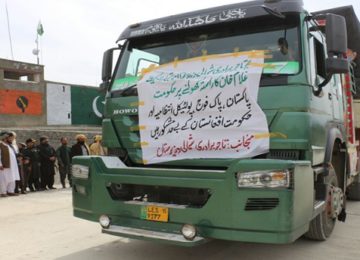October 28, 2020
The two-day Pakistan-Afghanistan Trade and Investment conference at Islamabad ended with a positive note, and a number of recommendations for improving bilateral political and trade relations.
The conference also highlighted the centrality of the parliament in pushing political and economic agenda.
Several times during the proceedings the name of Asad Qaisar, the speaker of Pakistan’s National Assembly – the lower house – resonated because of the pressure he mounted on the bureaucracy for expediting basic structural issues such as visa, import/export tariffs and border controls.
No surprise, thus, that Asad Qaisar, who hails from the Northwestern Khyber Pakhtunkhwa province, became the centre of attention, even at the concluding dinner hosted Tuesday by Rahimullah Qatra, the Afghan Charge d’Affairs.
“Our whole-hearted gratitude goes to the Speaker of the National Assembly of Pakistan (Asad Qaisar) for spearheading the dialogue among the members of the parliament, traders and for pushing the bureaucracy into resolving problems that have been worrying people on both sides of the border,” said Umar Daudzai, the Special Representative to President Ashraf Ghani, while addressing the dinner participants.
The Afghan Minister for Commerce Nisar Ahmed Ghoryani as well as representatives of Pak-Afghan Joint Chambers of Commerce and Industries (PAJCCI) also joined Daudzai in appreciating the role of the parliament in resolving long-standing issues.
“Never before did I see such a warm ambiance in Pakistan Afghanistan relationship, I am so happy to be here, witnessing positive development in bilateral relations. This is indeed a win-win for both the countries,” Daudzai said on the occasion.
Qaisar heads the Pak Afghan Parliamentary Friendship Group which incorporates members of all political parties. It has been regularly holding meetings to push officials into mitigating strategies as far as refugees, trade, visa and border controls are concerned.
Daudzai underscored the need for working on improving the general environment in both countries.
It is pertinent to note that, the two-day Pak-Afghan Trade and Investment Forum – October 26 and 27, 2020 – put forward 140 proposals to promote trade. The forum recommended the Pakistani government to allow five-year business and residence visa to all Afghans who are willing to start businesses in Pakistan.
It also noted that a business visa should grant a person legal rights such as opening of bank accounts, driving license, ownership of property. Moreover, allowing nationality to Afghans that invest a certain minimum amount in Pakistan’s manufacturing sector was also proposed.
Regarding bilateral trade and transit, it was recommended that Pakistani trucks should be allowed to move up-to the Tajikistan, Uzbekistan, Turkmenistan border. Likewise, Afghan trucks and vehicles should be allowed to move to Wagah border and Karachi ports.
Pakistan’s foreign mission in Jalalabad should be requested to issue road passes for non-stop flow of trucks and vehicles. The time limit should be increased for Pakistani trucks and cargo for crossing Afghanistan and unloading on the border of Tajikistan. Branches of joint chambers of commerce should be developed at Torkham and Chaman borders in order to facilitate chamber-to-chamber relations. Besides these, scores of other recommendations were proposed encompassing all major sectors of the economy.
“We have yet to solve many problems, but we have started the journey towards a mutually accommodating relationship, he added, pointing out that the Afghan Pakistan Action Plan for Peace and Stability (APAPPS) provides the best forum to address contentious issues.
“APAPPS is a great central permanent mechanism for addressing issues which are obstructing positive movement forward.
“Our emphasis in Afghanistan is to improve the general situation, because once we improve the general situation (perceptions about each other), it can then help in taking care of political disagreements,” he stated.
Daudzai also lauded Pakistan’s new liberal visa policy, which he said is creating a lot of goodwill among common Afghans.
Umar Daudzai was also appreciative of Pakistan’s role in the Afghan reconciliation.
“We are also as thankful to Pakistan as the United States and other countries for helping in the reconciliation process, which Pakistan says it is committed to. He however said, generally people in Afghanistan believe that Pakistan has full control over the Taliban, but “I understand it is actually not this way.”
There are certain limitations which we understand. However, whatever leverage Pakistan has on the Taliban, it should use it to further impress on the Taliban to stay the course at Doha, he said.
Daudzai also emphasized the need to end the violence as soon as possible.
“Although Taliban insist that the ceasefire is part of the ongoing negotiations and not the pre-requisite, yet every Afghan desires that it should happen first before we get into formal talks,” said the special representative.
“Reduction in violence is one prerequisite, because with every single day of war, we are losing over100 persons, which means a similar number of families getting affected.”
In a nutshell, the increased frequency of comprehensive engagements between Pakistan and Afghanistan, including the recent trade and investment conference, that too steered by the Parliament of Pakistan, herald better days for both sides.
The author Imtiaz Gul is the Executive Director of Afghan Studies Center and the Center for Research & Security Studies (CRSS), Islamabad.



